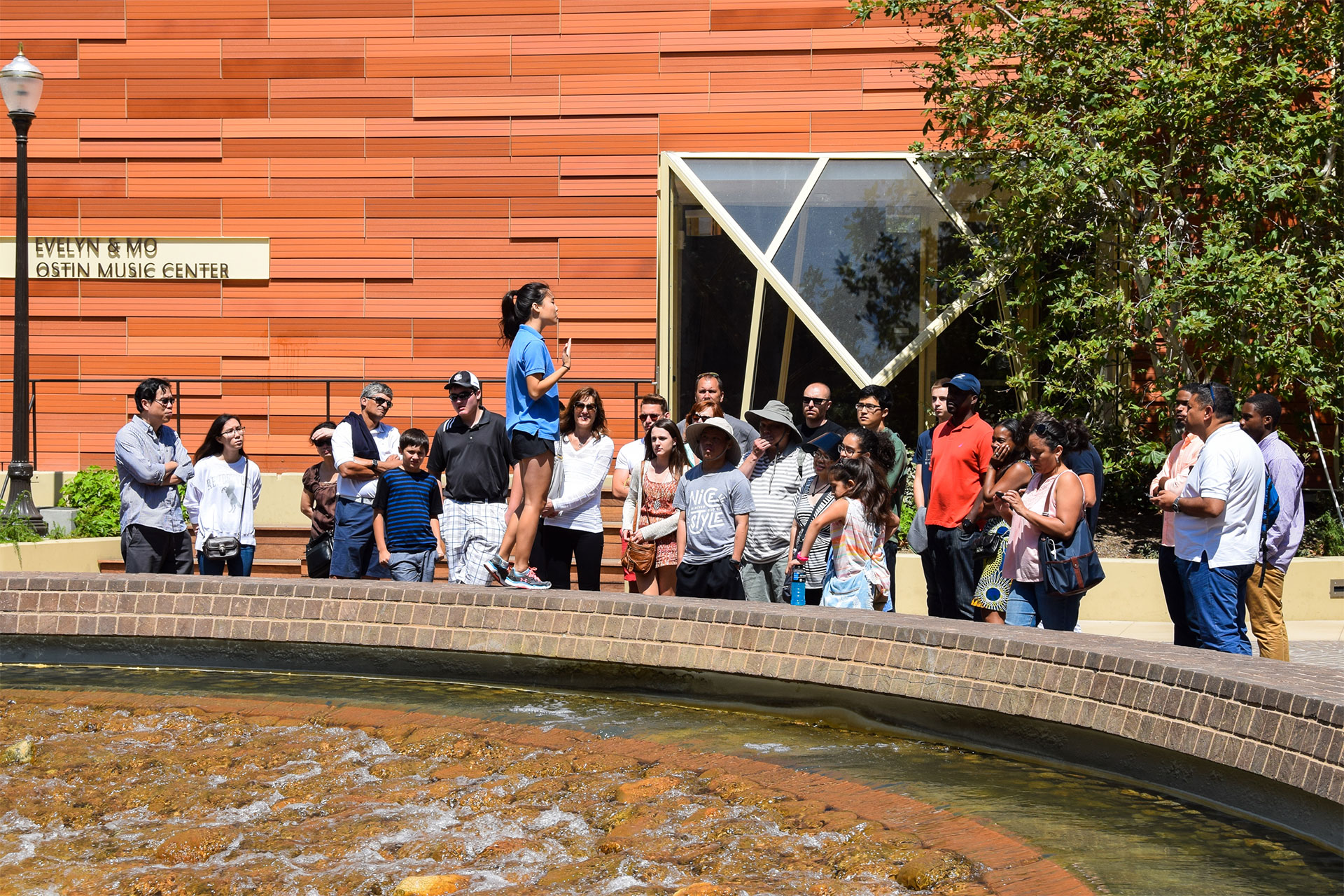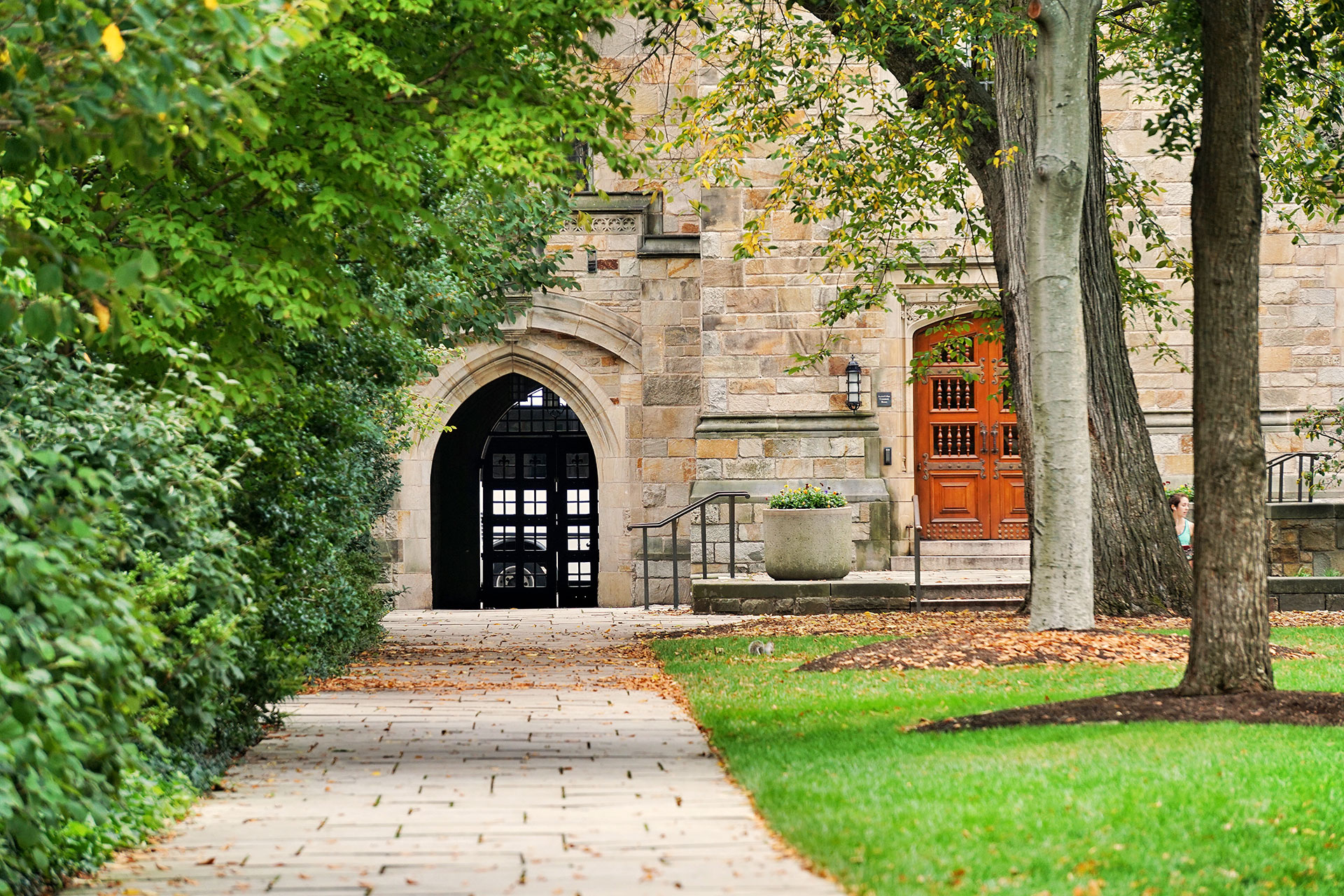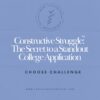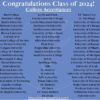
College visits are some of the more important and under-maximized opportunities available to students during the admissions process. Of course, not every student can afford, or has the opportunity to visit campuses, and that certainly is not a problem. In fact, most applicants never visit the schools to which they are applying. Most colleges offer extremely informative websites and virtual tours as a way to bring the on-campus experience to its applicants at home. Nevertheless, if you are fortunate to visit different schools, here are some things to keep in mind before you arrive.
Most importantly, plan before you go. Families tend to plan their trips geographically, which makes sense. We strongly encourage students to visit different regions, types, sizes, and demographics of schools. This will help students formulate a balanced list. If your student thinks he wants a large, public school with a lot of school spirit, it is also useful to visit smaller, liberal arts colleges nearby, to see the differences. Often students are surprised. One of our clients was looking at Harvard and we encouraged him to visit Tufts while in the Boston area. Tufts is very different from Harvard, size-wise, urban vs. suburban, smaller liberal arts vs. large research university. After touring Tufts, this client was inspired to see Amherst, Weslyan, Williams, and Swarthmore.
Once you know where you are going, check the websites of each college. Every school, on its admissions website, has an option for “Visit” or something similar. There, you will see how to sign up for tours and/or information sessions. These programs are extremely informative. We highly recommend signing up for these sessions online and checking in when you get there. If you are planning to travel during school breaks or summer, register for these events long in advance, even if you cancel later, as space is limited and they fill up quickly. Generally speaking, the information session and tour require about 3 hours of time, and most schools offer two programs per day. Check the websites of the specific schools you are visiting to determine how much time you will need. Sometimes, it is possible to visit two schools in one day if they are close to one another, but you must plan ahead.
Tours and information sessions are perfect opportunities to really learn about the schools, see the classes in action, and pay attention to the students that the colleges select to represent them as tour guides. Could you see yourself as one of these students? During the information sessions and tours, we strongly suggest taking notes. We recommend that students, at the beginning of their college application journey, maintain a small journal as a single repository for all of their notes. We even suggest that parents keep their own notebooks, as four eyes/ears are better than two. Of course, my kids say that they take notes on their phones. During the sessions, pay attention, take notes, be respectful, etc. Here is some information you should attempt to acquire:
- Name of School
- Name of regional representative. This person is critical. In all likelihood, this will be the same person who is visiting your high school, speaking with your high school counselor, and making crucial admissions decisions on your application.
- Name of Presenter
- Name of Tour Guide
- Class(es) Attended
- Professors you met or listened to
- Overall Impressions
- Special program/class that interests you
- Something I need to research further
- Questions to ask representative or interviewer later
- What is school looking for in applicants
- 3 things you liked/did not like
- 3 reasons I want/do not want to go here
- 3 pictures I took
- Something notable/funny that happened or something that stood out specific to that college?
- Could I be happy here?
- Feeling
As noted above, be sure to write down the name of your presenter, your tour guide, and ask for the name of your regional officer. Sometimes, this information appears on the website and/or Naviance. The purpose of getting these names is to follow up with these individuals. You also might want to refer to them in your essay, if they tell a particularly poignant story. Write down anything interesting you observe, not just the information already available on the website. You might observe students playing frisbee, painting “the Rock” at Northwestern, or the gargantuan Adirondack Chair sculpture on Swarthmore’s campus. Not only will these little observations or vignettes help to distinguish your application, they will be precious to you when you sit down to write your essays a year later, as memories fade and all the information merges into one indistinguishable collage of college-bound imagery. We had a student visit use an observation from her tour of Chicago to begin her essay:
As my campus tour concluded, I was distracted by a group of students building a human chain with neon-colored hula hoops. I laughed to myself. As a member of TeamUSA for rhythmic gymnastics, I have worked with hoops every day, for the last eleven years, but never like that. The irony was not lost on me. I have visited University of Chicago (“UofC”) millions of times, as both of my parents were born and raised in Chicago, but this was my first tour in earnest, viewing UofC through a different lens, considering that it might be the perfect college for me.
An admissions officer at an elite school once told me that they want students to provide specific reasons they wish to attend their school. Before you go on your visits, we strongly suggest reaching out to a professor, or two, in the area you wish to study, and ask if they might consider meeting you to discuss the program or your particular interests. Also, you might ask to observe this professor’s class. If you get such an opportunity, go; be respectful; take notes; introduce yourself afterwards; and of course, send a thank note. As the regional advisor for Penn told me years ago, “we are all suckers for a handwritten note.” On more than one occasion, I have heard of professors taking an interest in an applicant and notifying admissions, which serves as a de facto recommendation. In most cases, you may be able to write about something you learned while observing the class in your essays.
Beyond simply learning about the schools and deciding if you like them, campus visits can be important resources for rounding out your applications in an authentic way. Be open minded and observant, and these visits will pay off in spades.






